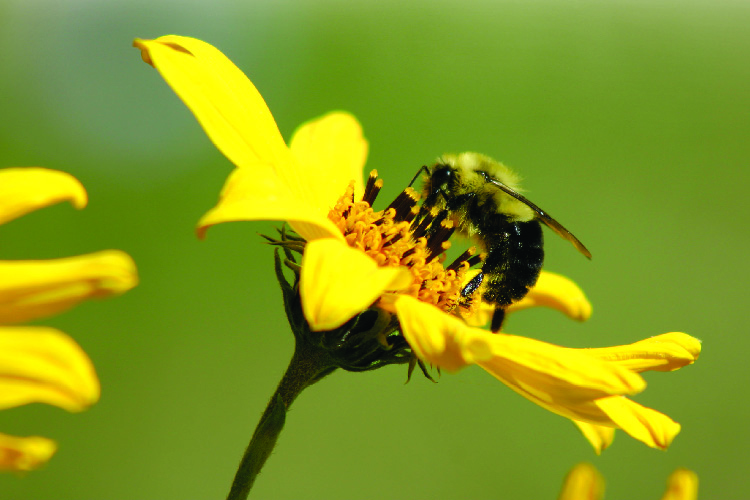Over the past couple of years, nearly one-third of all honeybee colonies have disappeared.
No bees, no pollination, no mankind.
Some people think that bees are only important for honey they produce. Do you know that over one-third of our food supply relies upon bees for pollination services? Let’s think about the food you have on your table. Pollination is essential for reproduction of many of our food crops, such as soy beans, apples, almonds, carrots, sunflowers, onions and etc.
The balance of entire ecosystem and survival of humankind on Earth are very much depending on the bees, the humble little creatures that live in a very well-ordered and sophisticated community.
No bees, no pollinations; No pollinations, no food crops; No food crops, no human! All living beings including human will face the disastrous food crisis when bees disappear from the planet.
Beginning in October 2006, beekeepers in North America had a big shock when they discovered a highly unusual loss of their bee colonies. Some beekeepers have lost up to 90% of their bee hives. Shortly afterwards, European beekeepers began to report similar cases, and the problem appeared to have spread to Asia by 2007. This unusual phenomenon is termed Colony Collapse Disorder (CCD), a phenomenon where worker bees from a bee hive suddenly disappear and never return to the hive. The remaining bees in the colony starve to death and many of the bees also appeared to be severely diseased.
Seriously, CCD is a problem that every one must be aware of. There is numerous causes that lead to CCD. After all, modern industrial agriculture which practises monoculture is one of the main culprit. In California, which produces 80% of the world’s almond crop requires pollination for a short time every year. Bee hives are trucked right across thousands of miles to perform this duty. There is nothing but only almond flowers for miles and miles. Several researches below show that monoculture farming makes the bees weak.
In a monoculture environment, there is no other bee forage exists to support bees after the bloom. The bees are then fed with corn syrup, which is almost guaranteed to be genetically engineered. And then, there is pesticide. Monoculture acts as pest magnets. In a balanced ecosystem, each pest insect has limited supply of its preferred food, and its natural predators and disease keep the quantity of the pest insects in check. In monoculture practice, the pest insects are provided with a huge area of identical food, eventually these pests will rampage through the crop happily. While farmers attempt to kill the pests using pesticides, it affects non targeted insects such as bees as well. Many pesticides have adversely affected bees’ health, weaken their natural defense system and make them prone to diseases.
There is a harmonised rhythm for every natural phenomenon in this universe. Sunrise and sunset, rising tide and ebb and also a synchronised timing of flower blooming and bee emergence from hibernation. However, global warming which lead to extreme weather change has affected blossoming of plants. Plants may blossom early, before honeybees start dying, or may not produce flowers at all, thus limiting nectar and pollen supplies for the bees.
Gunther Hauk, Author of Toward Saving the Honeybee; biodynamic gardener as well as beekeeper for over 30 years, once said, “The bees are always telling us all kinds of things we have to learn. They are giving us messages, and their crisis is our crisis. Definitely.”
Bee disappearance is endangering our food supply chain. It is the bill we have to pay for what we have done to Mother Nature. However, each opposite values is complementary. It is also a message from the bees, to offer us an opportunity to start living a balance and harmonious life, to respect Mother Nature and all her precious creatures before everything is too late.
Here’s what we can do to build a bee friendly environment:
• Eat organic to support bee-friendly farming. Organic farming practises multi-crop farming as well as crop rotation.
• Do not clear land unless absolutely necessary. Leave a small portion of your garden wild. Plant trees and wild flowers at your garden for bees. Wild flowers have different blooming season and provide bees with continuous supply of food throughout the season.
• Create your own organic garden, stop using harmful toxic chemicals especially not to use pesticide during mid-day when bees are most likely to be out foraging for nectar.
• Share the bee’s message to create awareness among your friends and families.
















